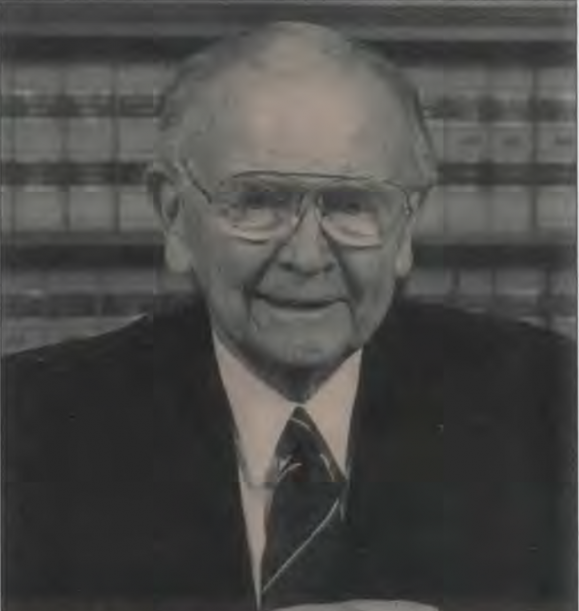As a Supreme Court Justice for 33 years, William Brennan was considered — ruefully, by his many conservative detractors — to be one of the most influential shapers of public policy in the country over the last three decades of the 20th century. He was appointed to the court by President Dwight Eisenhower in 1956.
During this 1990 interview at his office Brennan began by discussing his youth in Newark, New Jersey and his parents, William Joseph and Agnes (nee McDermott) Brennan, both born in County Roscommon.
How did your parents meet?
My mother came to the States to live with an aunt, a Mrs. Butler, who had a boardinghouse in Newark. My father had been working on building the canal at Trenton, and didn’t like it very much. He had a chance to get a job in Newark at Ballantine’s brewery. He needed a place to live and somebody told him about a Roscommon lady who had a boarding house. That’s how my mother met him. She was about 17 or 18 at the time.
How did your father’s rise in the labor union come about?
He started shoveling coal at Ballantine’s. The conditions were bad so he started organizing within Ballantine’s and then other breweries in the city. There were no trade laws to help you in those days. You just had to fight your way through. He did it so well that he moved up the organized labor hierarchy around Newark. At the same time he was also moving up in the International Brotherhood of Firemen and Oilers.
Where you influenced by his work ethics?
With my dad, you had to be working at something, preferably at something that you liked, all the time. And I had every kind of job in the world. Across the street from us was a dairy farm and my brother Charlie, at five in the morning, would milk the cows and by the time they had cooled it and bottled the milk, I would walk across the street and deliver it all the way up to the school, which was two miles away, and then in the afternoon I would deliver papers. Another job I had was with the trolley-car system. The transit company dreamed up the bright idea of having high school kids carry a change purse and go up and down the trolley aisles with change so that there would be no delays. That paid $5 a week.
Tell me about your mother.
I wish I could do justice to her. Mother was just absolutely extraordinary, really, she was a sweet, caring woman, fending off my dad when he got upset with something we were doing. She would protect us.
Did your parents ever return to Ireland?
They went over in 1928. That happened to be my first year in Harvard Law School. You got your grades sometime in the summer and I remember how impossible it was to get telephone service in those days. My father sent telegrams saying, “Did you get your grades, did you get your grades?”
Was your being a Catholic a factor in your confirmation?
There were unfortunate suggestions that on issues concerning the Church, I would be favorable to the Church.
I was asked about this when my appointment was up for confirmation before the Senate Committee on the Judiciary. Senator [Joseph C.] O’Mahoney of Wyoming said, “Mr. Justice, if a case presents a conflict between the Church and the Constitution, who prevails, the Constitution or the Pope?” I said, “Senator, I took my oath to support and defend the Constitution just as faithfully and sincerely as you took the same oath when you were sworn in as a senator and, of course, the Constitution is what I’m here to interpret and the Constitution, obviously, is what I will interpret, no matter what kind of effect it may have on anything.”
You defend the freedom of people to question you.
I feel very strongly about that. I think that the most important provision of our Constitution is the First Amendment. It defines for us the kind of society we are and that we want to be. No matter what the criticism, I will never deny any citizen the right to say what he feels.
In the past 10 years, you have tended to write far more dissents than in your first 15 years or so here. Do you feel that a lot of the work you’ve done is now being undone?
No. Diversity of views is so essential in our scheme of things. Colleagues may differ, but he or she has a responsibility to keep saying what he thinks, even after he’s been turned down, as I have by colleagues on my view that the death penalty is unconstitutional under the Eighth Amendment. Don’t forget, Plessey &Ferguson, separate but equal, was the law of the land for some 70 years before it was overruled in Brown versus Board of Education. Things can change. I’m not too often in the majority on the major issues of the day, but it can all change again ♦
Also by Sean O Murchu LONE JUSTICE An Interview with Justice William Brennan, Jr.


Leave a Reply